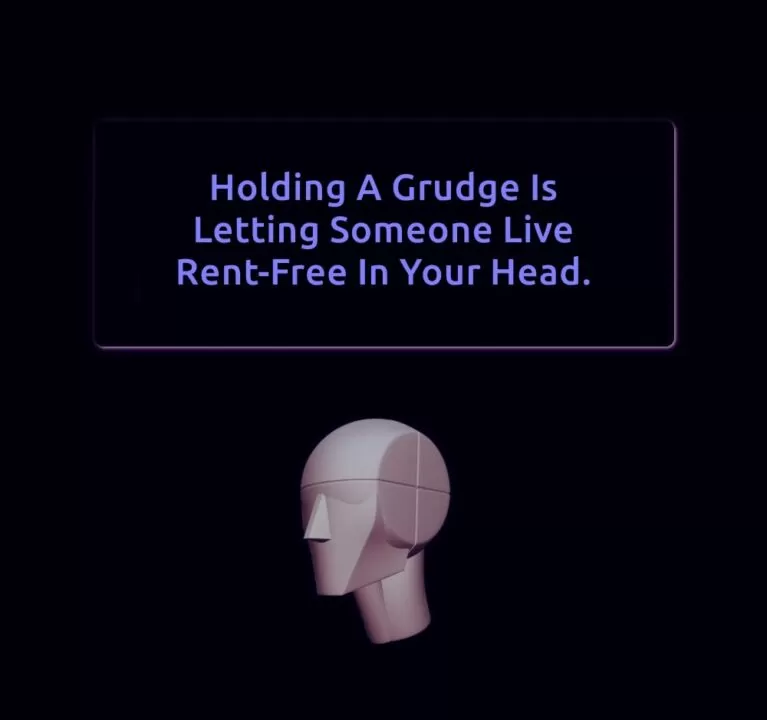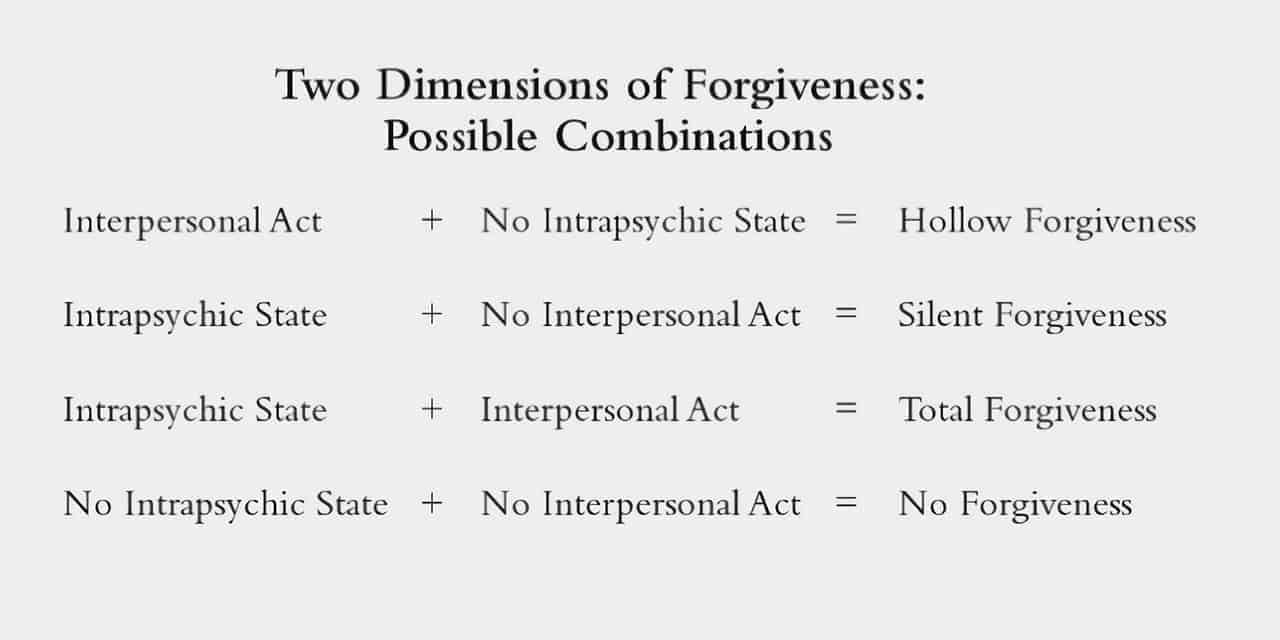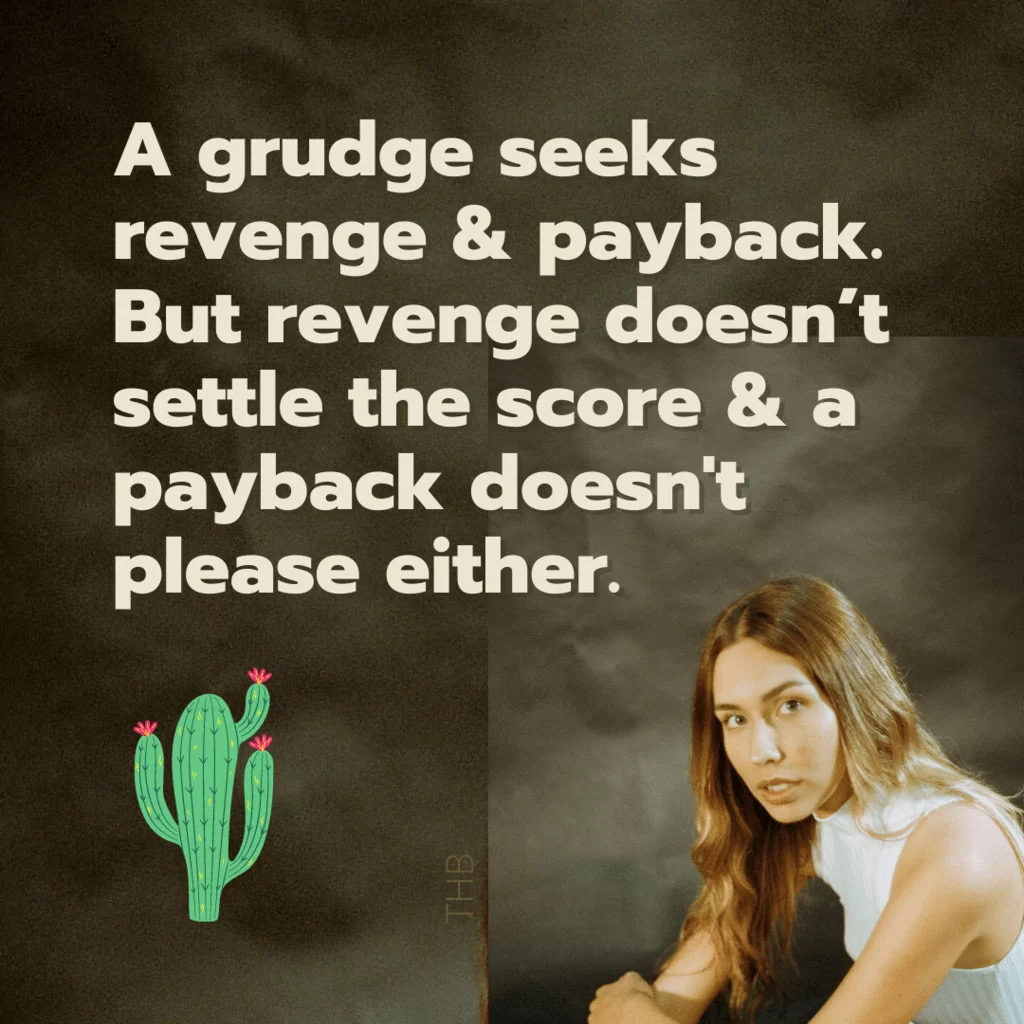Reading time: 14 minutes
— Researched and reviewed by Dr. Sandip Roy.A grudge is like a stray bullet inside the head that keeps hurting until the last day. So, how can you stop holding grudges, and why should you even let them go?
Everyone you know has, at some point, hurt you in some way.
Some you forgave, and some you broke up with, because they had turned toxic.
Some stayed on because you were late to see the damage they were causing. Relationships with a narcissist are often like that.
When they finally leave, you are left holding a bag of grudges.
That rage and hate keep returning, making you restless to seek vengeance.
How To Stop Holding Grudges?
A grudge is a persistent feeling of ill will or resentment resulting from a past insult or injury.
Grudges slowly but surely ruin your peace of mind, leaving you disabled to sustain your happiness.
If you’re undecided about releasing it, realize that letting go of your bitterness is for your own good, first of all.

So, here are a few highly effective ways to let go of your grudges:
1. Forgive And Stop Expecting Compensation
Forgiveness is the most recommended way to release your grudges.
Grudges form when we forget that other people’s mistakes are keeping us bitter.
Forgiveness can remove that bitterness, but it doesn’t come easy. Many people simply veto forgiveness and strongly criticize those who advocate pardons for offenders.
Like this woman who wrote on a social media post: “I do not believe in forgiveness. Adults make choices, and bad choices have consequences. It’s on them. Not me!”
But we must learn to forgive.
Psychological studies indicate that forgiveness can lead to better physical health and emotional balance. It is not just about letting go of past hurts but also about restoring inner equilibrium.
Unforgiveness can become a psychological trap that blocks personal growth and happiness. Refusing or being unable to forgive keeps one tied to past hurts, causing ongoing trauma and unhappiness.
Let us understand the idea of forgiveness before deciding to forgive or not.
a. What Forgiveness Is Not
- Forgiveness does not mean you accept and behave as if there was never any wrongdoing.
- It does not mean you’ve absolved the perpetrator of their guilt, so they’re free to repeat it.
- It also does not mean you have agreed to heal your relationship with the transgressor.
- Finally, it does not automatically restore your trust in them.
- Forgiving is not forgetting.
Forgiveness is for you. It stops your emotional pain from the violation.
Forgiving means you reject playing the victim’s role and choose happiness, instead of continuing to stay hurt and miserable.
b. Parts of Forgiveness
Psychology says, forgiveness has two parts independent of each other:
- Letting go of inner anger and resentment (intrapsychic state): The first part is the most essential part of forgiveness. In essence, it means you stop feeling angry or resentful over the transgression.
- Telling the offending person “I forgive you” (interpersonal act): The second part is secondary. You may choose not to return the relationship to normalcy.

“The weak can never forgive. Forgiveness is the attribute of the strong.”
― Mahatma Gandhi
c. Types of Forgiveness
Based on these two dimensions, there can be four types of forgiveness:
- Hollow forgiveness: when you tell them “I forgive you” but do not forgive them actually in your mind.
- Silent forgiveness: when you forgive them in your mind but do not let them know.
- Total forgiveness: when you forgive them in your heart and tell them you have forgiven them.
- No forgiveness: when you continue holding a grudge against them.
There is no need to tell them you forgave them, as you can forgive them “silently.” You also have no responsibility to ease or release their guilt.
To forgive is to cancel the debt you think your offender owes you.
It means you will not seek any revenge, demand any compensation, or expect them to make amends.
Letting go of your grudge against a person is like forgiving a debt; you stop expecting the debtor to pay it back.
2. Understand Your Grudge Better
After a while, it can be hard to remember what it was you were grumbling about in the first place. Sometimes, you might have long since forgotten why you’re still angry, but by then the grudge has taken on a life of its own.
A few steps to know your grudge better:
a. Find the one you hold the most grudge against
It is fairly easy, as it’s usually someone you are or were close to. If it doesn’t seem obvious, ask yourself, “Whom I haven’t forgiven ever for what she/he did to me?”
b. Think and write all your grudges against them
It would be obvious to you what still makes you angry and bitter thinking about them. You may or may not go over the entire incident in your mind again.
What’s more crucial is you ask yourself what scars they left on you.
- Did they make you develop a deep distrust towards all people?
- Did they destroy your self-confidence and self-respect?
- Did they replace your positivity and joviality with negativity and anxiety?
Then write down why you still harbor hatred, anger, and bitterness against them. It will help you identify your emotions around your grudge.
c. Change your perspective and give them some leeway.
A grudge seeks revenge. And the best revenge is a life well lived.
Think of it this way. The person you accused might have already suffered enough. They might still be going through their painful process of guilt.
Our history of tribalism combined with our need to be liked by our social network—is a recipe for suffering and pain. (For your info, Facebook envy is real.)
In a way, we are social animals living in a world with many unwritten social contracts. So if we believe a breach of contract happened, they are okay to not realize it—it wasn’t written anywhere.
Then why should we expect them to compensate us for letting go of our grudge?
Forgiving a villainous person is like:
“Forgiven. Expelled from my life. No future access permitted.”
d. Replace the emotions whenever hostile memories appear
When the memory of that transgression surfaces, decide beforehand what you will get yourself busy with to turn the emotion dial.
Tell yourself you will get up and dance your heart out for 5 minutes whenever you remember the hurt.
Pack your bags to visit a new place. Even a trip to an art gallery in your city or to the nearest town might be helpful, as traveling makes us happier.
Forgiving does not mean you forget their cruel act.
You could choose any activity that suits your temperament, mood, situation, and time.
One proven way to turn your mood for the better is to express gratitude for all your positive achievements.

3. Find A New Passion or Hobby
Unfortunately, most grudges are long-lasting and sometimes stick to us like leeches for life. We need to indulge ourselves in a new passion to get over them.
a. Rediscover your long-ignored talents
Find an activity that used to make you relaxed and get happier, but something you stopped doing. Sit down and think for a while: did you love making simple cartoons to explain something to a group?
Or something else? Pick up that activity. Do it once and see if you want to keep it up or do something else.
Then do it regularly.
b. Write down your greatest positive achievements
It is an easy activity. What were you praised for, by anyone, in your entire life? Write each of those.
Think of everything that makes you unique among your social circle and family. Write them down.
Find out what things you did that you were particularly proud of. They may not be so important for others but were exceptional achievements for you.
Choose one and do it regularly.
c. Start a new course of learning
If you can’t seem to find anything from your past to your interest, then start something new.
Since the Covid pandemic, many prestigious universities have released their courses for online access.
Go ahead and find something you could learn with deep interest. We have listed some open courses on Positive Psychology here.
You might subscribe to a YouTube channel on creativity, history, or science (like Scientific American), and go through the lessons for free.
✶Try learning Stoicism—an ancient Greco-Roman philosophy that is so practicable even today.
d. Share your passion with the world
Once you feel you have learned enough, start to showcase your knowledge and skills to the world. It serves two purposes. One, it helps you hone your expertise. Two, it gives you a chance to give back to the world.
You might start a blog or a podcast or a video channel. Even if there are countless other blogs and podcasts, you can make yours unique.
One podcast we are so much in love with is Scott Barry Kaufman’s The Psychology Podcast.
Once you start expressing yourself before the world, you will gradually grow your own style and voice.
4. Write A Grudge Letter
This is an offbeat way to handle your grudge. But it works. A simple, straightforward process, writing can heal us.
- Write a letter to the person you are holding a grudge against.
- Write in detail about how you feel about them in the letter.
- Do not post it. Burn it, shred it, or destroy it any other way.
- Do not speak to them or contact them about your forgiveness.
- Replace their thoughts with positive thoughts and actions.
• How To Deal With Someone Who Has A Grudge Against You?
Why Should You Stop Holding Grudges?
You should stop holding grudges because they store anger and remorse, both unhealthy emotions that keep your stress levels high.
Self-forgiveness allows you to go forward without being held back by the past.
Here are the reasons why you should stop holding grudges:
1. Grudges Drive Unhelpful Actions
Grudges drive us to unleash our rage on the culprit.
However, acting on a grudge isn’t helpful because the vengeance obtained isn’t always an equalizer.
Moreover, revenge frequently returns as a bigger source of grudge. Vengeance feeds on itself and often becomes a vicious cycle.
And if the offender pays back the victim, whether by consent or by force, the victim may not feel fully compensated.
2. Grudges Cause Biased Thinking
People who hold grudges tend to engage in black-and-white thinking. This bias is also known as all-or-nothing thinking.
In this bias, people view the world and others’ actions as either all good or all bad — without any room for in-between possibilities.
3. Grudges Stop Progress
Grudges can hold us back from moving on with our lives.
Grudges keep our brains trapped in the past, rather than focusing on the positive or moving forward.
Holding a grudge prevents a person from progressing in life because it keeps them frozen in that exact moment when they were victims of wrongdoing.
A grudge can demotivate us from working consistently on a hard task. It can frustrate us into abandoning our goals.
4. Grudges Intensify Pains
A grudge replays the emotional pain when someone hurt us, causing us to relive the negative experience over and over again.
Holding grudges often leads to negative fantasies about our perpetrator’s losses and doom. Now, when the offender doesn’t incur the losses we fantasize about, it makes us even more bitter.
Grudges worsen our emotional agony, particularly when the opponent is too powerful, and can lead to self-harm.
A grudge is a dangerous weapon to hold because it hurts the owner before it hurts the target.
5. Grudges Stop Processing of Negative Emotions
Grudges drive us to vent our frustrations on others.
But there is an even worse way to deal with it: deny that it even exists.
Denial is the defense mechanism that protects us from a powerful offender’s terror or wrath.
By stifling the painful memory, we also gag the accompanying negative emotions.
When we don’t process our difficult emotions but escape or avoid them, it stops us from:
- building resilience (our ability to cope with adversity and adapt to changes), and
- developing flexibility (our ability to respond to difficult situations with actions based on current feedback).
According to a 2021 study, tolerance of negative emotions and confrontation with one’s behavior are both elements of the self-forgiveness process.

FAQs
What personality type holds grudges?
Any type of personality is capable of holding grudges. However, a highly sensitive person (HSP), a narcissist, and an antisocial person are more prone to holding grudges.
Those unlikely to hold grudges are compassionate, altruistic, and kindhearted persons. Some other types who do not tend to hold grudges are people who are forgetful, successful in their careers, and nonviolent.
What is a person called who holds grudges?
People holding grudges are often called vindictive, bitter, spiteful, revengeful, resentful, vendetta-seeking, antipathic, implacable, and rancorous.
What is a grudge?
A grudge is a toxic urge to wreak revenge on someone who has wronged us. Grudges frequently lead to actions (to make the offender pay back) that the grudge-holder later regrets. The key components of a grudge are anger and resentment.
A grudge is a typical emotional complex that negatively affects our personality, motivation, well-being, and achievements.Why do we hold grudges?
There can be 4 reasons for holding grudges:
1. Holding a grudge places the victim on a moral high ground, a position borne out of righteous indignation. They often don’t want to give up their vantage point.
2. A grudge keeps the offender captive in the victim’s mind with the belief they owe a recompense. If they offended you, then they must pay something back in addition to an apology.
3. By holding onto a grudge, the victim can extract larger tangible benefits, especially if the perpetrator is in a close relationship with them.
4. The act of holding a grudge pressurizes the offending person to be wary of repeating the transgression.
Related Reading:
- Roads less travelled to self-forgiveness: Can psychological flexibility overcome chronic guilt/shame to achieve genuine self-forgiveness? Link: https://www.sciencedirect.com/science/article/pii/S2212144721000703
- The cost of self-forgiveness: Incremental theorists spent more money after forgiving the self for past overspending. Link: https://www.sciencedirect.com/science/article/pii/S0191886921002774
- The mediating roles of guilt- and shame-proneness in predicting self-forgiveness. Link: https://www.sciencedirect.com/science/article/pii/S0191886919301746
- Does forgiveness alleviate depression after being phubbed for emerging adults? Link: https://www.sciencedirect.com/science/article/pii/S0747563220301151
- Dispositional self-forgiveness, guilt- and shame-proneness, and the roles of motivational tendencies. Link: https://www.sciencedirect.com/science/article/pii/S0191886916302707
Final Words
“A grudge seeks revenge and payback. But revenge doesn’t settle the score and paybacks don’t please either.”
Your grudge can be against anyone from your social circle. It could be your own personal outrage against someone you came across, or it could be generally directed against the world or society.
But sometimes you hold a grudge against yourself. It’s the memory of times when someone didn’t appreciate your efforts, made you feel useless, and acted as if you didn’t matter.
Self-grudges are quite common (just ask yourself). Unresolved, they can turn into shame and guilt.
Self-grudge often reshapes itself into guilt. And guilt, by definition, is marked by unpleasant emotions and self-criticism. (Baumeister & Stillwell, 1994)
If you’ve had your fair share of self-grudges, then note that if you can forgive the world, then you can forgive yourself too.
Let’s close this with a fitting quote by Chloe Neill: ‘The best revenge is a life well lived.’
• • •
√ Please share it with someone if you found this helpful.
√ Also Read:
- How To Forgive Yourself For Hurting Someone Unintentionally
- 10 Steps: How To Forgive Someone Who Keeps Hurting You
- Why Is Gratitude More Important Than You Think
• Our Story!